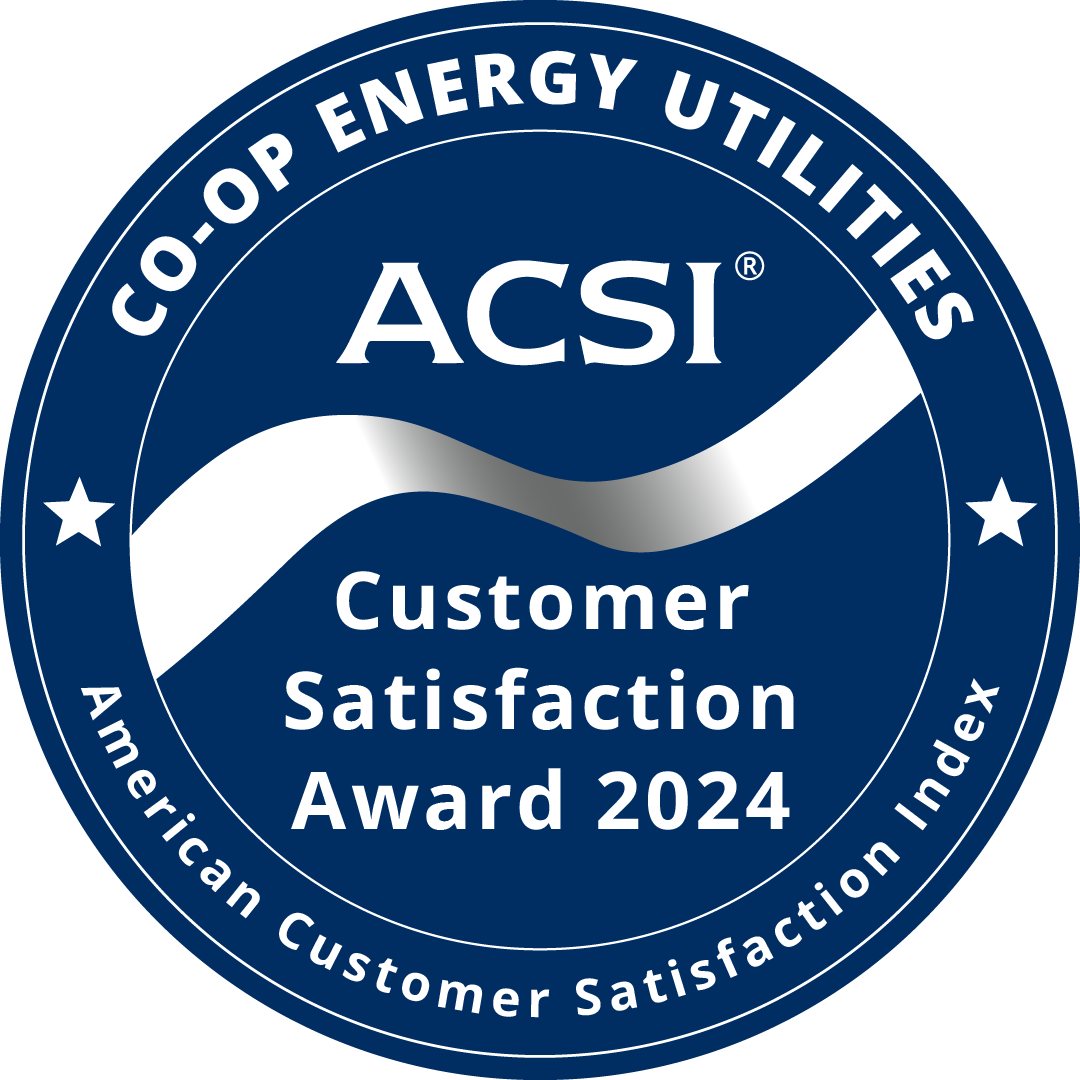As a not-for-profit electric cooperative, CCEC bases its member rates on a cost-of-service model with three main factors: the cost of wholesale power (generation and transmission), the cost to operate and maintain CCEC’s distribution system, and a small amount needed for a margin to ensure financial stability. The largest factor in the model, wholesale power cost, is projected to increase. Long-term financial forecasts for 2025 and beyond indicate a steady rise in costs for power generation, transmission, and overall demand.
In January of this year, CCEC announced a $1 per 1,000 kWh monthly Wholesale Power Cost Adjustment (WPCA) charge; this was the co-op's first WPCA charge since 2019. WPCA is a temporary adjustment that represents the difference between the current cost to generate and transmit electricity and what is currently being collected in CCEC’s retail rate. It’s a charge that goes directly to pay for the increasing cost of electricity.
If the long-term financial forecasts for 2025 and beyond hold, CCEC will need to increase the Wholesale Power Cost Adjustment (WPCA) for the remainder of 2025. However, if the forecasts are inaccurate and wholesale costs decrease, the charge will be reduced or eliminated.
The financial forecasts show a steady rise in wholesale costs due to increasing fuel cost, maintenance expenses, and uncertainties in the electric industry. Nationwide, constrained supply and high electricity demand have led to higher costs. Forecasts foresee reduced supply as dispatchable generation facilities retire without timely replacements, while unprecedented demand increases with new manufacturing and data centers.
Our goal at CCEC is to do everything we can to protect our members from rising costs and to provide the lowest rates possible along with the best reliability and member service. That’s why we collaborate with other NC cooperatives to ensure a reliable and affordable power supply portfolio. This portfolio includes owned generation and power purchases through wholesale agreements. Our generation resources offer reliability and affordability through diversification, encompassing nuclear, natural gas, hydro, and renewable generation.
Collectively, the NC Cooperatives are developing long-term plans to protect affordability while maintaining reliability. For instance, recently, the cooperatives entered into a joint agreement with Duke Energy to own 450 MW of new combined cycle natural gas generation in Person County, NC, called the Person County Energy Complex. As a best-in-class combined cycle natural gas plant, the complex will operate at increased efficiency by using both gas and steam turbines to produce electricity, effectively capturing exhaust heat from the gas turbine to power a secondary generator. It is expected to provide dependable and flexible operations from 2029 onward to meet the cooperatives’ load needs and maintain affordable rates. Going forward, continuous analysis of the NC Cooperative’s power supply portfolio will be conducted, evaluating models and scenarios to identify the best mix of generation for affordability and reliability.
Together, the NC Cooperatives work with state and federal elected officials to ensure that affordable and reliable power for our local communities remains a priority for energy policy. Here at home, CCEC works to shield members from rising costs with internal efforts to trim operating costs without sacrificing reliability.
To help members control costs, CCEC provides tools for members to identify and manage their electricity usage. CCEC offers a free energy audit to members to help discover ways to lower energy usage. Our PowerPay 24 website helps members track their electric usage and find ways to save. Additionally, CCEC invites members to join our Connect My Thermostat program, where a smart thermostat can help reduce electricity costs and earn $50 for enrollment and $50 for each year in the program.
In May, CCEC will launch a voluntary Beat the Peak program; peaks occur when many people use electricity at once, typically during summer afternoons and winter mornings. During these peaks, CCEC’s power cost is much higher.
By signing up to receive Beat the Peak alerts, our members can help keep rates affordable. Participating members will be notified by text message of upcoming peak usage periods. We anticipate these periods will occur 3 to 5 times monthly, depending on the temperatures. When you receive an alert, we ask that you reduce your usage during peak hours.
More information will be announced in the May issue of Carolina Country and at the co-op's 85th Annual Meeting of the Membership on May 1.

